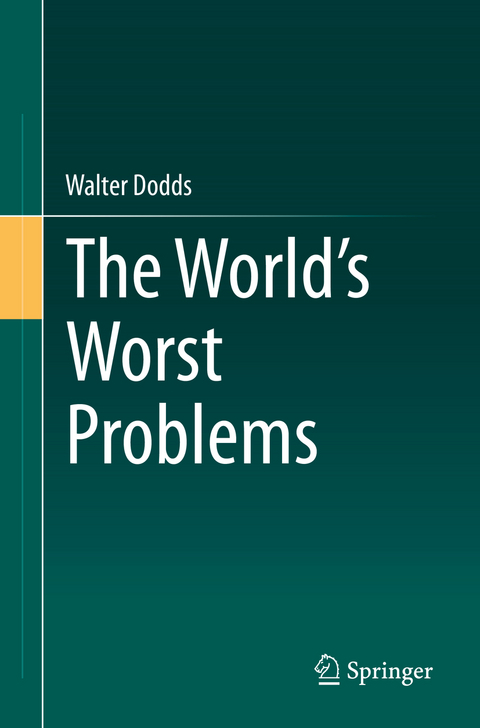
The World's Worst Problems
Springer International Publishing (Verlag)
978-3-030-30409-6 (ISBN)
The book discusses confirmation bias and why this necessitates a scientific approach to tackle problems. The moral assumption that each person has the same rights to life and minimal suffering, and that the natural world has a right to exist, forms the basis of ranking problems based on death, suffering, and harm to the natural world. A focus is given to potential disasters such as asteroid collisions and super-volcanic eruptions, which are then presented in chapters that address specific contemporary global issues including disease, hunger, nuclear weapons and climate change. Furthermore the author then ranks the problems based on an index of problem severity, considering what other people think the worst problems are. The relative economic costs to solve each of these problems, individual behavior in the face of these problems, how people could work together internationally to combat them, and a general pathway toward solutions form the basis of the final chapters. This work will appeal to a wide range of readers, students considering how they can help the world, and scientists and policy makers interested in global problem solving.
Walter Dodds is a University Distinguished Professor at Kansas State University and an Edwin G. and Lillian J. Brychta Chair in Biology. He specializes in environmental aspects of freshwater ecology. He has numerous peer-reviewed publications and has authored several books including Humanity’s Footprint (on global environmental issues) and Laws, Theories, and Patterns in Ecology (a graduate overview of ecology). He is a fellow of the American Association for Advancement of Science, the Society for Freshwater Science, and the Association for the Sciences of Limnology and Oceanography.
Chapter1. Introduction.- Chapter2. Global problems.- Chapter3. Apocalypse.- Chapter4. Disease Now and Potential Future Pandemics.- Chapter5. Hunger.- Chapter6. Nuclear Weapons.- Chapter7. Global environment in the Anthropocene.- Chapter8. By the Numbers: Ranking the Problems.- Chapter9. What do other people think the worst problems in the world are?.- Chapter 10. Progress toward solving the problems and potential costs of solutions.- Chapter11. Technochimp: An African savannah survivor looking for solutions in the modern world Our inability to see the big picture; it never mattered before, why does it now?.- Chapter12. International cooperation.- Chapter13. Consilience, global socioeconomic political enlightenment, and socioenvironmental restoration.
| Erscheinungsdatum | 18.02.2020 |
|---|---|
| Zusatzinfo | XI, 146 p. 21 illus., 5 illus. in color. |
| Verlagsort | Cham |
| Sprache | englisch |
| Maße | 155 x 235 mm |
| Gewicht | 254 g |
| Themenwelt | Mathematik / Informatik ► Mathematik ► Wahrscheinlichkeit / Kombinatorik |
| Medizin / Pharmazie | |
| Naturwissenschaften ► Biologie ► Ökologie / Naturschutz | |
| Schlagworte | Confirmation Bias • Dunning Kruger effect • Global mortality data • Infectious Diseases • International cooperation • Moral assumptions about problems • Problem severity • risk analysis • Socioeconomic revolution • Socioenvironmental restoration |
| ISBN-10 | 3-030-30409-4 / 3030304094 |
| ISBN-13 | 978-3-030-30409-6 / 9783030304096 |
| Zustand | Neuware |
| Haben Sie eine Frage zum Produkt? |
aus dem Bereich


